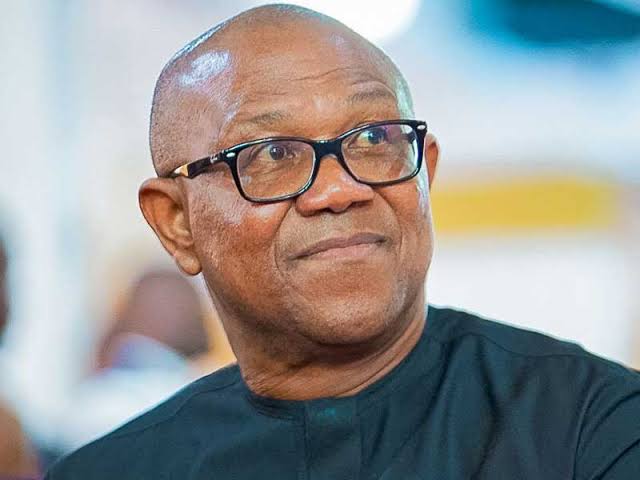
The candidate of the Labour Party (LP) in the 2023 presidential election, Peter Obi, has lambasted the Nigerian government over the donation of 25,000 metric tonnes of wheat by war-torn Ukraine.
SaharaReporters on Friday reported that 25,000 metric tonnes of wheat were provided by the war-torn Ukrainian Government to support the World Food Programme (WFP) in providing emergency food assistance to 1.3 million crisis-affected people in North-East Nigeria.
It was learnt that the donation was part of the humanitarian “Grain from Ukraine” initiative launched by President Volodymyr Zelenskyy.
The WFP Representative and Country Director in Nigeria, David Stevenson, while receiving the grains on Thursday in Abuja, said the shipment was made possible with collaborative efforts from Canada, Denmark, Finland, France, Luxembourg, Norway, Republic of Korea, Sweden, and the United Kingdom, which provided the costs of transporting the wheat from Ukraine to Nigeria.
Reacting, Obi said that such a gesture from a country that rather needs humanitarian assistance as a result of the effect of the ongoing war with Russia, is disheartening and a national disgrace to Nigeria which is officially at peace.
While applauding Ukraine for the kind gesture, Obi said that a war-torn country donating food to Nigeria underscores vigorously the importance of sound political leadership as the first concrete requirement for any nation desiring to develop and enhance the standard of living of its citizenry, stressing that the national disgrace stems from years of leadership failure in Nigeria.
Obi in a series of posts on his X handle said, “Let me begin by sincerely appreciating the war-torn nation of Ukraine for their generous donation of tons of grains to Nigeria thereby aiding our current fight against nationwide hunger.
“As laudable as Ukraine’s kind gesture is, it speaks volumes for us as a people endowed with all needed human and natural resources, that a country officially prosecuting a brutal war of national survival with its powerful neighbor, Russia, is generous and kind enough with their food supplies to help us who are officially at peace.
“For the people of Ukraine, this act of human solidarity testifies to a rare generosity of spirit which should earn them greater global solidarity. It demonstrates our shared humanity.
“However, a situation like this underscores vigorously the importance of sound political leadership as the first concrete requirement for any nation desiring to develop and enhance the standard of living of its citizenry.
“It is disheartening that our once economically confident nation, blessed with vast arable land and abundant natural resources, now relies on a war-torn Ukraine for food assistance.
“This national disgrace stems from years of leadership failure, necessitating urgent reflection and a reordering of our national priorities and resource management and allocation.
“Instructively, Ukraine, with a population of 43 million on 603,728 km2, outshines Northern Nigeria, covering 744,249 km2 with a young, energetic population exceeding 100 million.”
The former governor of Anambra State in Southeast Nigeria continued, “In 2015, Ukraine’s GDP per capita was $2125, compared to Nigeria’s $2680. By 2022, despite being at war, Ukraine’s GDP per capita exceeded $4000, while Nigeria’s regressed to $2184. Ukraine cultivates over 60% of its arable land, whereas Nigeria has over 60% uncultivated arable land.
“Despite the conflict, Ukraine feeds itself, and exports agricultural products worth over $ 25 billion which is about the same value as our crude oil export earnings, and it serves as a strategic global food supplier, even providing aid to a peaceful yet unproductive Nigeria.
“To overcome this embarrassment, we must aggressively reorder our priorities by investing resources in productive sectors like agriculture.
“Addressing insecurity is crucial for farmers to return to their fields, enabling a productive manufacturing sector and supporting small businesses.
“In 4 to 5 years, this concerted effort can reverse the current trend, leading us toward a productive and New Nigeria that I believe is possible and within reach.”

